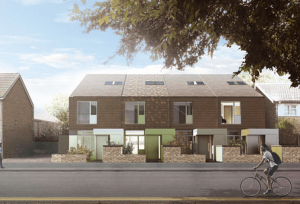 Getting planning permission is an obstacle for many projects. If you are looking to create your dream home, it could be a massive stumbling block. Luckily, you can get help from the team at Coffey Architects. We understand the common reasons permission may be refused. As a result, we can help clients to avoid or work around them. This skill and creativity is one of the reasons we are a top name for residential architecture in London.
Getting planning permission is an obstacle for many projects. If you are looking to create your dream home, it could be a massive stumbling block. Luckily, you can get help from the team at Coffey Architects. We understand the common reasons permission may be refused. As a result, we can help clients to avoid or work around them. This skill and creativity is one of the reasons we are a top name for residential architecture in London.
Is there a clash?
One of the most important things to keep in mind is there are planning policies in place at Local and National levels. For example, there is the NPPF and rules from each individual council. If your plan clashes with them, it can be very hard to get permission. Your only option is usually to show that there is a strong case for your proposal.
Is it necessary?
The government holds most of the development rights in the UK. It is their responsibility to make sure that the developments are right for the areas. For example, you may propose that you want to build a giant mansion in a location with a massive shortage of housing. The local council or government may refuse if they feel the site would be better as multiple homes. Therefore, it is important to check what the council’s priorities are and prove that your proposal is necessary.
The quality and size of homes
When it comes to housing, the government has a responsibility to protect quality and sizing. Planning policies will often detail the requirements here, especially minimal space standards. Plus, it is vital to think about natural lighting in properties and outdoor space. Issues with anything here will likely mean you don’t get permission. As a result, it can completely ruin plans for residential architecture in London.
Privacy and overshadowing issues
Local councils and the government are always conscious of the impact new developments have on existing properties. They will look to see if your proposal will have a negative affect such as overlooking current homes or blocking sunlight from them. If it does either, you may not get permission.
Does it harm a local amenity?
Leading on from above, local councils have an obligation to protect living standards of existing residents. So, they will look at all aspects of a project that have an impact on their quality of life. For example, your proposal may have an effect on parking in an area. Or, it could have an impact on the character of the area or noise levels. In all cases, permission may not be forthcoming.
Loss of employment space
Some projects involve the change of use or demolition of commercial space. The government has to decide whether this is acceptable or not. In some cases they may rule that the loss of employment space is unacceptable.
Speak to us about planning for residential architecture in London
At Coffey Architects we know how stressful it can be if you have a project and then struggle to get permission. It can cause additional costs, completely ruin your schedule, and at times means the whole project is no longer viable. Our goal is to help clients to get approval as easily as possible. We can share advice, give design recommendations, and much more.
Our unique experience with residential architecture in London is really useful here. So, if you want to build your dream home, we would love to help you with planning, permission, and more. Contact us to get started.
